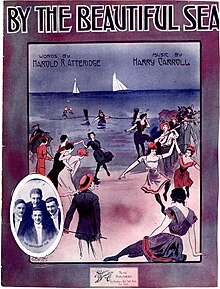
William Clement Frawley was an American vaudevillian and actor best known for playing landlord Fred Mertz in the sitcom I Love Lucy. Frawley also played "Bub" O'Casey during the first five seasons of the sitcom My Three Sons and the political advisor to the Hon. Henry X. Harper in the film Miracle on 34th Street.
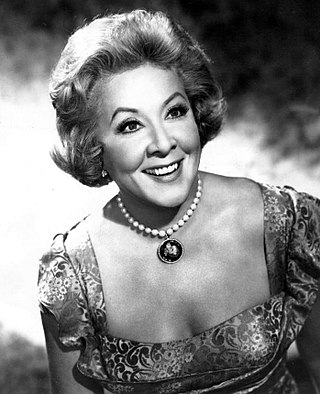
Vivian Vance was an American actress best known for playing Ethel Mertz on the sitcom I Love Lucy (1951–1957), for which she won the 1953 Primetime Emmy Award for Outstanding Supporting Actress, among other accolades. She also starred alongside Lucille Ball in The Lucy Show from 1962 until she left the series at the end of its third season in 1965. In 1991, she posthumously received a star on the Hollywood Walk of Fame. She is most commonly identified as Lucille Ball’s longtime comedic foil from 1951 until her death in 1979.
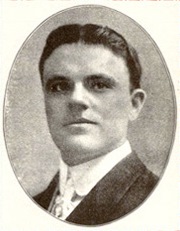
William Thomas Murray was an American singer and voice actor. He was one of the most popular singers in the United States in the early 20th century. While he received star billing in Vaudeville, he was best known for his prolific work in the recording studio, making records for almost every record label of the era. Murray was the best-selling recording artist of the first quarter of the 20th century, selling over 300 million records during the phonograph era.

"It's a Long Way to Tipperary" is an English music hall song first performed in 1912 by Jack Judge, and written by Judge and Harry Williams, though authorship of the song has long been disputed.

Harry Carroll was an American songwriter, pianist, and composer.

"Shine On, Harvest Moon" is a popular early-1900s song credited to the married vaudeville team Nora Bayes and Jack Norworth. It was one of a series of moon-related Tin Pan Alley songs of the era. The song was debuted by Bayes and Norworth in the Ziegfeld Follies of 1908 to great acclaim. It became a pop standard, and continues to be performed and recorded in the 21st century.

Ada Jane Jones was an English-American popular singer who made her first recordings in 1893 on Edison cylinders. She is among the earliest female singers to be recorded.

Peter DeRose was an American composer of jazz and pop music during the era of Tin Pan Alley. In 1970, he was inducted into the Songwriters Hall of Fame.
Ballard MacDonald was an American lyricist, who was one of the writers of Tin Pan Alley.

"By the Light of the Silvery Moon" or "By the Light of the Silv'ry Moon" is a popular love song. The music was written by Gus Edwards, and the lyrics by Edward Madden. The song was published in 1909 and first performed on stage by Lillian Lorraine in the Ziegfeld Follies of 1909. It was one of a series of moon-related Tin Pan Alley songs of the era. The song was also used in the short-lived Broadway show Miss Innocence when it was sung by Frances Farr.
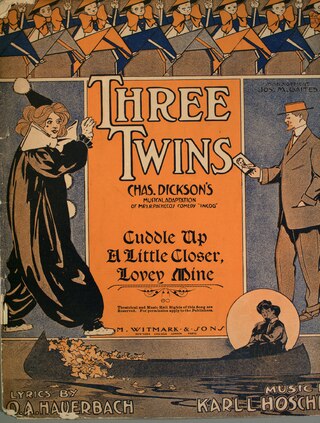
"Cuddle Up A Little Closer, Lovey Mine" is a popular song. The music was written by Karl Hoschna, the lyrics by Otto Harbach. The song was published in 1908. From the Broadway musical Three Twins when it was introduced by Alice Yorke.
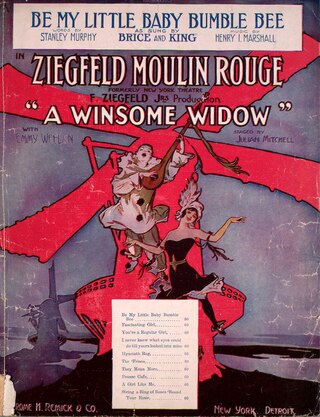
"Be My Little Baby Bumble Bee" is a popular song. The music was written by Henry I. Marshall and the lyrics by Stanley Murphy. The song was published in 1912, and appeared in the 1912 play A Winsome Widow.

"My Melancholy Baby" is a popular song published in 1912 and first sung publicly by William Frawley. The music was written by Ernie Burnett (1884–1959), the lyrics by George A. Norton.

The American Quartet was a four-member vocal group that recorded for various companies in the United States between 1899 and 1925. The membership varied over the years, but the most famous line-up — comprising John Bieling, Billy Murray, Steve Porter (baritone), and William F. Hooley (bass) — recorded for the Victor Talking Machine Company from 1909 to 1913. The same group of singers also recorded for Edison Records as the Premier Quartet, and for that and other labels as the Premier American Quartet. From 1912 to 1914 the quartet also recorded with countertenor Will Oakland as the Heidelberg Quintet.
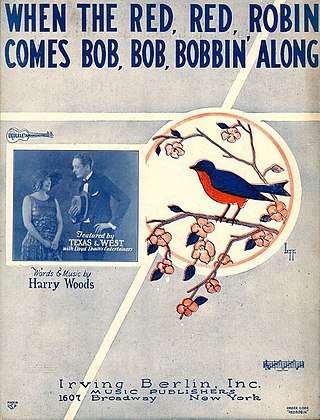
"When the Red, Red Robin " is a popular song written, both words and music, by Harry Woods in 1926. The song became the signature song for singer and actress Lillian Roth, who performed it often during the height of her musical career from the late 1920s to the late 1930s.

"I'm Glad There Is You (In This World of Ordinary People)" is a song written by Jimmy Dorsey and Paul Madeira (sometimes credited as Paul Mertz) first published in 1941. It has become a jazz and pop standard.
"Man Smart (Woman Smarter)" is a calypso song variously credited as being composed by Norman Span (King Radio), D. L. Miller, F. Kuhn, and Charles Harris. Span's authorship seems most likely since, as a popular calypso musician and songwriter, he first recorded the song in 1936, and none of the other ascribed composers are associated with calypso. Miller's music industry career began around 1950.

William F. Hooley was a British-born American bass singer and pioneer recording artist who was popular as a solo singer, as a monologist, and as a member of several of the most successful vocal groups of the early twentieth century, including The Haydn Quartet and The American Quartet.

Some Like It Hot is an album by guitarist Barney Kessel performing adaptations music from Billy Wilder's 1959 film Some Like It Hot, recorded in 1959 and released on the Contemporary label.
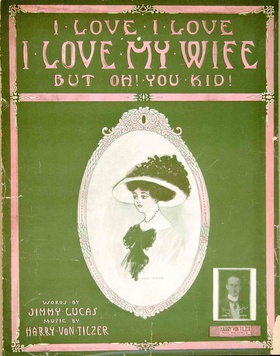
"Oh! You Kid!" is the title, or part of the title, of several popular songs published in 1908 and 1909. It became a widely used popular catchphrase. The most successful song using the phrase, "I Love, I Love, I Love My Wife – But Oh! You Kid!", was written by Harry Von Tilzer and lyricist Jimmy Lucas, and recorded by the duo of Ada Jones and Billy Murray.
